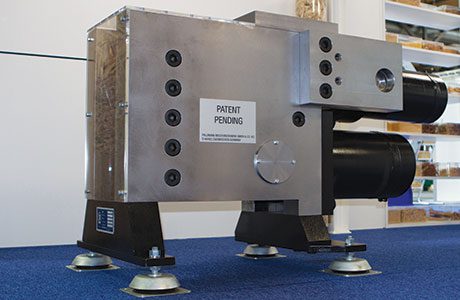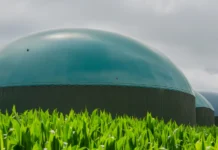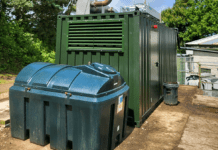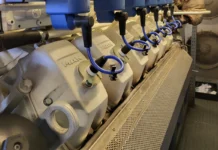
GERMAN firm Pallmann Group, a manufacturer of innovative size reduction technology, is joining forces with Standard Bio, an expert in novel biomass conversion technologies, to develop a new biorefinery concept that will use low-value organic waste as a resource for clean energy, natural fertilizers and animal protein.
The concept is based around the conversion of renewable resources—in the first case trees from cultivated forests, although it can also be applied to other types of biomass—into solid briquettes for energy generation, as well as natural oil. At its heart is a patented high-pressure wood press and drying machine developed by Pallmann and Standard Bio, capable of producing 500m3 of compressed wood per day, along with 50 160-L barrels of natural oil. Pallmann will develop and build various pieces of equipment to reduce the dried wood to particulate sizes that can be converted into the briquettes.
Briquettes will be produced either by mixing dried wood chips with a small amount of tree oil and then compacting it to form bio-briquettes (also known as HerbBalls) of by pyrolysing the sawdust and then forming charcoal briquettes. Some of the output can also be combined with other natural resources rich in nitrogen to produce fertilizer and animal feed.
The two companies plan to set up a demonstration plant in an area of forest in Norway that will use wood surplus to the requirements of timber processing operators in the region who produce materials for the building and construction industry. A goal is to provide technology and equipment packages for customers around the world.
Standard Bio already operates a pilot press that can squeeze water and natural oils out of wood before it is reduced to chips. This eliminates the need to expend energy on drying wet chips, and also provides a valuable resource in the form of tree oil that can be used as a feedstock in various other processes.
“We are developing technology for converting environmental waste and misplaced resources into commodities with high added value that can be sold around the world,” says Ove Lerdahl, CEO at Standard Bio. “The technology represents a highly cost-effective and sustainable means of producing clean energy from renewable resources that has no need for government subsidies to be successful.”
Standard Bio is a small company set up in 2014 as a spin-off from AgroPlas AS in Oslo, Norway.







